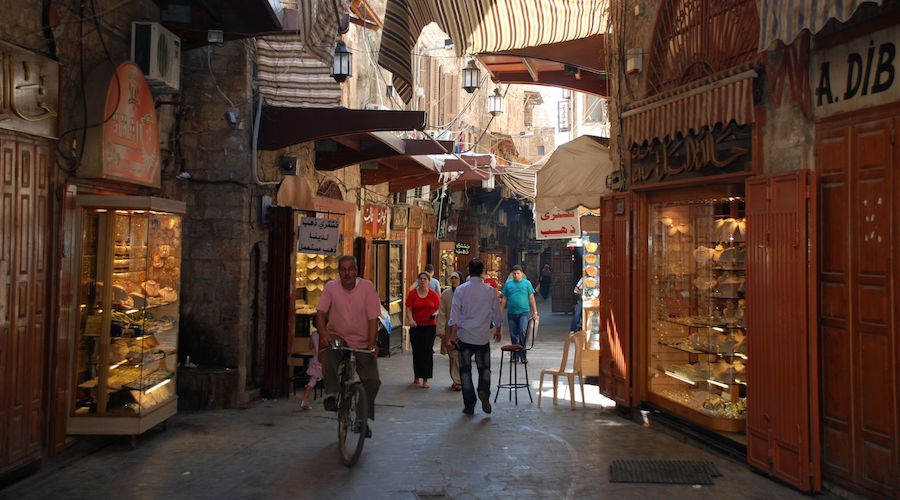Tripoli-based startup brings online retail to local merchants

Lebanon’s northern coastal city of Tripoli, once the center of trade in the region, is now too often associated with political instability. The city has plagued with explosions, protests, and civil strife. According to a 2015 UN study, more than 50 percent of families in Tripoli are impoverished, with a quarter of those families living under extreme poverty.
In June 2016, two local optimists saw the opportunity in the difficulty. Hassane Tabbal and Rabih Barakeh launched Tripoli-based retail platform Hurry Up hoping that getting local merchants to advertise their products online would improve their economic standing.
“Our app allows clients to upload various pictures and posts, and monitors the number of visitors on their posts, as well as to their competitors’ posts,” explained Tabbal, cofounder of Navybits, the startup that built Hurry Up.
“It was an important step, as I know that Tripoli is not what comes to mind when you talk about an online commercial platform,” he said.
One of the key features of Hurry Up is that it integrates Facebook’s Messenger-enabled chatbot platform to help deliver automated customer support and interactive guiding instructions in Arabic.

Gaining momentum
Since launching, Hurry Up has had more than 2,000 downloads, all of whom are residents of Tripoli, said Tabbal.
Tabbal and cofounder Rabih Barakeh have partnered with 50 shops and restaurants. The merchants, most with very little tech know-how, now upload pictures and broadcast their offers on the app.
“Getting a media illiterate crowd to join the app is certainly challenging,” he said. “A big number of the shop owners are traditional thinkers who don’t see any use in investing in social media.”

Getting them on board also meant patiently educating them on how to use the app and market themselves on Facebook. Tabbal also advises his clients on media strategies.
“This is how we are creating job opportunities in Tripoli. We expect to reach 5,000 users by the end of the year,” he added.
He and Barakeh have so far invested $27,000 on developing the app and hiring their team. They are hoping to get an investment soon. Currently, Hurry Up generates revenues from the client's’ subscription, charging $60 per month for every client. Most of his current clients, however, are using the app for free. Clients are allowed an unlimited number of posts and every post is accessible on Facebook.
Serving the under-served
When Tabbal quit his job at Saudi telecommunications giant Mobily and decided to become entrepreneur, he knew he wanted to give back to his community in Tripoli.
Tabbal and Barakeh initially launched a ‘good news’ platform where users would post morale-boosting content. With no sustainable revenue model and no original material, the platform quickly failed. It shut down after three months and Hurry Up was developed with the same core values, but a different service and business model. They have been residents of Tripoli-based incubator BIAT since September 2015.
“Our plan is mostly to focus on overlooked poorer communities, but we don’t mind going mainstream in the future,” said Tabbal. “Right now we are expanding to other areas in North Lebanon, like Zahle and Kesrouan. Then we will move to the [southern Lebanon] and other areas.”
As for their competitors, advertising companies trying to do what they are doing will pose a risk, but their minimum fee is an advantage for them, Tabbal noted.
“We are looking for $100,000 [in funding] to complete our expansion in Lebanon and Saudi, but honestly, a lesser amount would be welcome as we’re looking now for funds just to sustain the project,” said Tabbal.
Feature image via Wikimedia.


